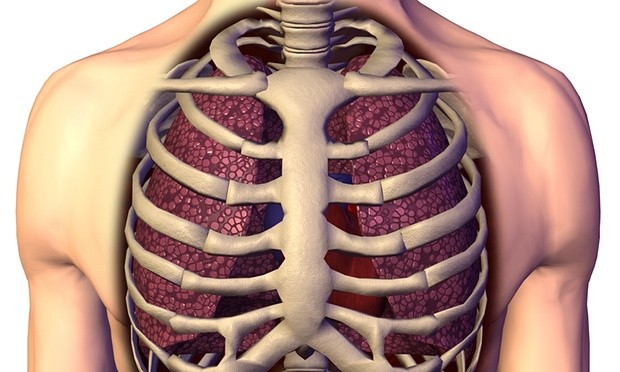Scientists revealed that a “sigh” helps preserve lung functions

Californian scientists have identified the source of the sigh. It is not just a response to sadness, depression or despair: it is, also, they report, a life-sustaining reflex that helps preserve lung function.
And a control system in the brain keeps humans sighing about a dozen times an hour, even when they aren’t thinking about the future of the NHS, the European referendum or the latest pronouncements of Donald Trump.
Researchers report in Nature that two tiny clusters of nerve cells in the brain’s stem – the region that, unbidden, automatically takes charge of breathing, sleeping and heart rate – orchestrate the sigh. They do this in a response to an unconscious command to reinflate as necessary the myriad tiny sacs in the lungs called alveoli, which control the body’s traffic in oxygen and carbon dioxide, and which sometimes collapse.
“Unlike a pacemaker that regulates only how fast we breathe, the brain’s breathing centre also controls the type of breath we take,” said Mark Krasnow, a biochemist at the Stanford University School of Medicine, and one of the authors.
“It’s made up of small numbers of different kinds of neurons. Each functions like a button that turns on a different type of breath. One button programmes regular breaths, another sighs, and the others could be for yawns, sniffs, coughs and maybe even laughs and cries.”
The research illuminates a puzzle about ventilation for patients with injuries or chronic lung disease: unless clinicians get the mechanical breathing rates exactly right, the patient is at risk of further injury. The new study delivers a better understanding of why a sigh – in effect an extra breath for an already inflated lung – is an important survival mechanism. The surprise lies in its simplicity.
“Sighing appears to be regulated by the fewest numbers of neurons we have seen linked to fundamental human behaviour,” said Prof Jack Feldman, a neurobiologist at University College Los Angeles and another author. “One of the holy grails in neuroscience is figuring out how the brain controls behavior. Our finding gives us insights into mechanisms that may underlie much more complex behaviours.”
The research team worked with laboratory mice, which sigh as often as 40 times an hour: they screened 19,000 patterns in the mice brain cells that could be linked with genetic activity, and zeroed in on 200 neurons in the brain stem that make and release one of two peptides, protein fragments important in brain signalling. The same family of peptides is at work in human brains, and known to be important in breathing and sighing: what the mouse research exposed was the genes and the nerve cells that controlled them.
The two laboratories co-operated to discover that the peptides triggered another set of nerve cells to activate the mice muscles and heave a sigh. If the scientists blocked one set of peptides, the animals sighed at half the rate. If they silenced both, the sighs stopped altogether. Since the function of the sigh was to reinflate collapsed alveoli with twice the normal intake of air, sighing becomes part of the survival machinery. “If you don’t sigh every five minutes or so, the alveoli will slowly collapse causing lung failure. That’s why patients in early iron lungs had such problems, because they never sighed,” said Feldman.
So a kiss may be just as kiss, as the song from the Hollywood classic Casablanca has it, but a sigh is not just a sigh. However the Californian study offers no answers as to why people might sigh when anxious, melancholy, or exasperated.
“There is certainly a component of sighing that relates to an emotional state. When you are stressed, for example, you sigh more,” said Feldman. “It may be that neurons in the brain areas that process emotion are triggering the release of the sigh neuropeptides – but we don’t know that.”
How to submit an Op-Ed: Libyan Express accepts opinion articles on a wide range of topics. Submissions may be sent to oped@libyanexpress.com. Please include ‘Op-Ed’ in the subject line.
- Libya’s HCS invites applicants for key state roles - December 31, 2023
- UK calls on Iran to prevent escalation in Israel-Hamas conflict - November 05, 2023
- Libyan Interior Minister: Immigrant shelter costs a fortune - November 05, 2023


